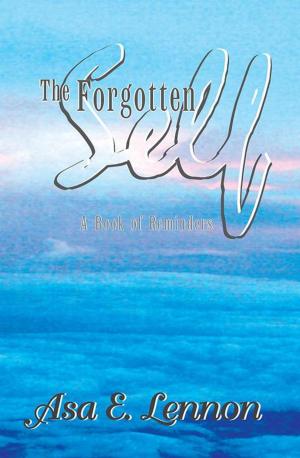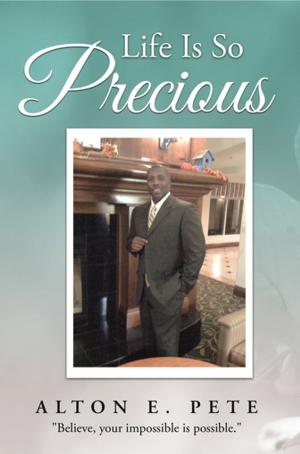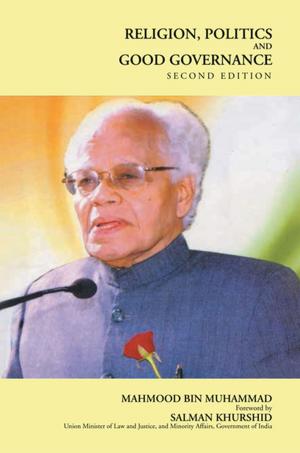| Author: | Yunsu Ha | ISBN: | 9781465377920 |
| Publisher: | Xlibris US | Publication: | October 20, 2011 |
| Imprint: | Xlibris US | Language: | English |
| Author: | Yunsu Ha |
| ISBN: | 9781465377920 |
| Publisher: | Xlibris US |
| Publication: | October 20, 2011 |
| Imprint: | Xlibris US |
| Language: | English |
Intuition is perceiving direct sensations of matter. It is qualitatively different from rational thinking. The human mind is familiar with thinking in rational functions such as deduction, generalization, comparison, analysis and so on. People mostly stay in this conceptual world of the mind in their everyday lives. But, among the mental functions, intuitive recognition apparently works in everyday lives in spite of its humble position. The usage of a simple coffee maker is intuitively understood without the manual. Likewise, the position of trivial things is intuitively perceived and controlled. People employ intuition most often in simple and trivial things in everyday life. The inspiration for the meaning of a life, considered over a long time span, or the wisdom of overcoming deep troubles might at first look intuitive rather than rational, but these cases could be interpreted as the accumulation of brewed rationality, too.
There are possibilities of pure intuition which could be experienced by everybody. However, these possibilities are mostly ignored because of a lack of understanding how to use. How to originate intuitive functions intentionally and how to improve their quality and quantity will be explained in this book. The sensation of artificial intuition seems to have infinite and noble features. These features could be drawn into reality and could make reality be sensed differently. Everybody can experience such transcendence with artificial intuition.
Gradually, this journey will indicate the direction of a noble life. People will happily prefer actualization of purity to hatred, prejudice, obstinate desire and vain daydreams. Even if people select impure thoughts and behaviors in tough reality, the inclination for the beauty of transcendence will gradually influence tiny notions and emotions in everyday lives. Beauty would conquer the human mind because, when a self is intuitively seen, that form of beauty is perceived as the Infinite. People will position intuition beyond rational functions at times when their experiences lead them in the opposite direction, toward the rationalization of their situations and surroundings.
Finally, people will notice the novel meaning of helping other people because they will be already familiar with enkindling the light of intuition in other people. People will be closer to artificial transcendentalism, intuitively and naturally.
Intuition is perceiving direct sensations of matter. It is qualitatively different from rational thinking. The human mind is familiar with thinking in rational functions such as deduction, generalization, comparison, analysis and so on. People mostly stay in this conceptual world of the mind in their everyday lives. But, among the mental functions, intuitive recognition apparently works in everyday lives in spite of its humble position. The usage of a simple coffee maker is intuitively understood without the manual. Likewise, the position of trivial things is intuitively perceived and controlled. People employ intuition most often in simple and trivial things in everyday life. The inspiration for the meaning of a life, considered over a long time span, or the wisdom of overcoming deep troubles might at first look intuitive rather than rational, but these cases could be interpreted as the accumulation of brewed rationality, too.
There are possibilities of pure intuition which could be experienced by everybody. However, these possibilities are mostly ignored because of a lack of understanding how to use. How to originate intuitive functions intentionally and how to improve their quality and quantity will be explained in this book. The sensation of artificial intuition seems to have infinite and noble features. These features could be drawn into reality and could make reality be sensed differently. Everybody can experience such transcendence with artificial intuition.
Gradually, this journey will indicate the direction of a noble life. People will happily prefer actualization of purity to hatred, prejudice, obstinate desire and vain daydreams. Even if people select impure thoughts and behaviors in tough reality, the inclination for the beauty of transcendence will gradually influence tiny notions and emotions in everyday lives. Beauty would conquer the human mind because, when a self is intuitively seen, that form of beauty is perceived as the Infinite. People will position intuition beyond rational functions at times when their experiences lead them in the opposite direction, toward the rationalization of their situations and surroundings.
Finally, people will notice the novel meaning of helping other people because they will be already familiar with enkindling the light of intuition in other people. People will be closer to artificial transcendentalism, intuitively and naturally.















